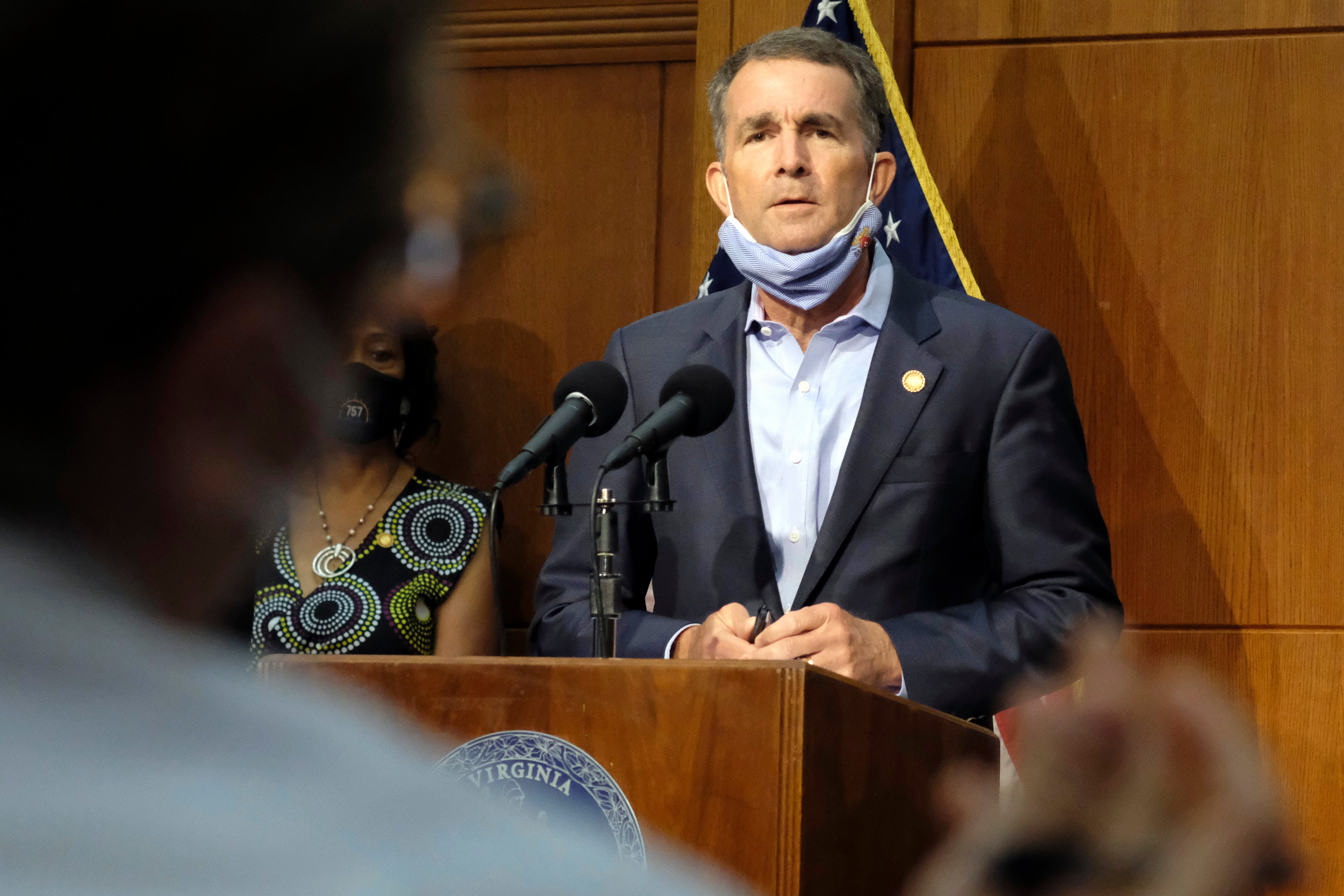Virus cases rise in US heartland, home to anti-mask feelings
The latest hotspot for the coronavirus in the United States is the heartland, where cases are rising in a worrying trend

Your support helps us to tell the story
From reproductive rights to climate change to Big Tech, The Independent is on the ground when the story is developing. Whether it's investigating the financials of Elon Musk's pro-Trump PAC or producing our latest documentary, 'The A Word', which shines a light on the American women fighting for reproductive rights, we know how important it is to parse out the facts from the messaging.
At such a critical moment in US history, we need reporters on the ground. Your donation allows us to keep sending journalists to speak to both sides of the story.
The Independent is trusted by Americans across the entire political spectrum. And unlike many other quality news outlets, we choose not to lock Americans out of our reporting and analysis with paywalls. We believe quality journalism should be available to everyone, paid for by those who can afford it.
Your support makes all the difference.It began with devastation in the New York City area, followed by a summertime crisis in the Sun Belt. Now the coronavirus is striking cities with much smaller populations in the heartland, often in conservative corners of America where anti-mask sentiment runs high.
The spread has created new problems at hospitals, schools and colleges in the Midwest and West.
Wisconsin is averaging more than 2,000 new cases a day over the last week, compared with 675 three weeks earlier. Hospitalizations in the state are at the highest level since the outbreak took hold in the U.S. in March.
Utah has seen its average daily case count more than double from three weeks earlier. Oklahoma and Missouri are regularly recording 1,000 new cases a day, and Missouri Gov. Mike Parson, a staunch opponent of mask rules, tested positive for the virus this week. And South Dakota, Idaho and Iowa are seeing sky-high rates of tests coming back positive.
The U.S. is averaging more than 40,000 new confirmed cases a day. While that number is dramatically lower than the peak of nearly 70,000 over the summer, the numbers are worrisome nonetheless. The nation's death toll eclipsed 200,000 this week, the highest in the world.
In other developments, Virginia Gov. Ralph Northam announced Friday that he and his wife have tested positive, though he said he has no symptoms. Northam, a Democrat who is also a doctor, has been criticized by Republicans who say his restrictions aimed at slowing the spread of the virus are too stringent.
In the Midwest and the West, hospitals in Springfield, Missouri, are approaching capacity because of a surge in cases. And the chief medical officers of two Idaho hospitals warned this week that their facilities are close to being overwhelmed by patients infected with the coronavirus.
There are also mounting problems at schools.
Dozens of students in Iowa went into quarantine this week amid a surge in cases and positivity rates in one county that exceed 30%. A neighboring county had a 27% positive rate and 201 students and staff in isolation or quarantine as of Wednesday after 18 students and eight staff members tested positive in the Sibley-Ocheyedan district, including the superintendent. The district continued to hold in-school lessons but added new social distancing requirements.
The virus is now landing squarely in places where there is strong resistance to masks and governors have been reluctant to require face coverings.
In the Missouri town of Joplin, a mask ordinance was allowed to expire last month as virus fatigue grew. The number of positive cases in Joplin and surrounding Jasper County has risen about 80% since the mask order was rescinded on Aug. 17.
People have grown weary after more than six months of virus restrictions in the deeply conservative county that President Donald Trump won by more than 50 percentage points over Hillary Clinton in 2016.
The mayor of Joplin said he regrets imposing restrictions in March at the start of the outbreak where there were few cases in Missouri, and wishes he had waited until later.
“That speaks to the fatigue because you can’t lock down your community and say, ’Here is the risk,' and there is really not much risk, and (then) try to do it again,” Mayor Ryan Stanley said. “People get very worn out of the process of trying to grind through that.”
The result is that residents have started to tune out local leaders' warnings to wear masks and socially distance.
“I am getting sick and tired of telling people to wear their masks and I know they are sick and tired of me saying it,” said Jasper County Health Department Administrator Tony Moehr. “And it just seems like people have heard it so many times, I’m not sure if they really even hear it anymore when we say it.”
Outbreaks have become the norm on college campuses around the country since students began returning, and officials worry about new trouble as the football season gets underway. College towns are taking increasingly harsh steps to crack down on parties and crowded bars.
At the home of the University of Oklahoma, the Norman City Council voted 5-3 this week to require that masks be worn indoors at house parties if more than 25 people are present. The ordinance passed over objections from members of the public.
“You can make any law that you want to. You come into my house telling me that I got to wear this stupid thing and you’re going to have a firefight on your hands,” said Josh Danforth, holding a mask, who identified himself as an Iraq war veteran.
___
Forster and Noveck contributed from New York.